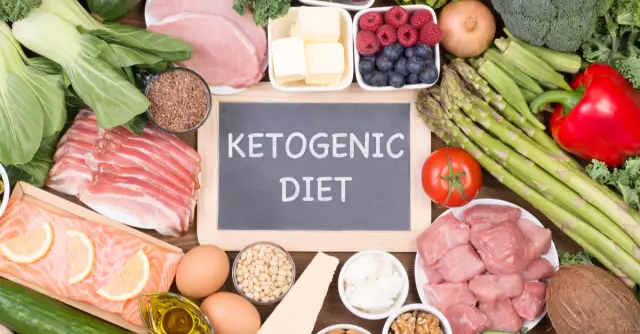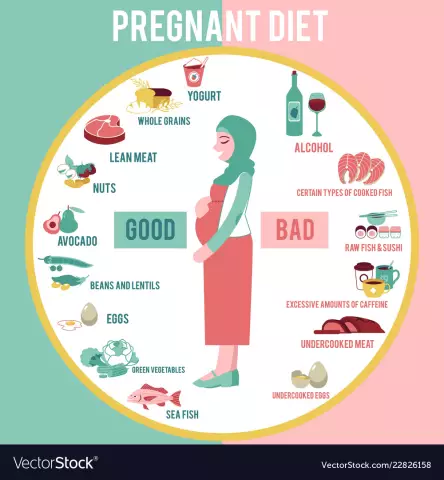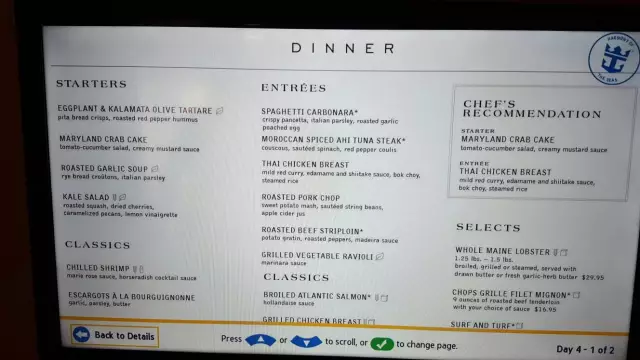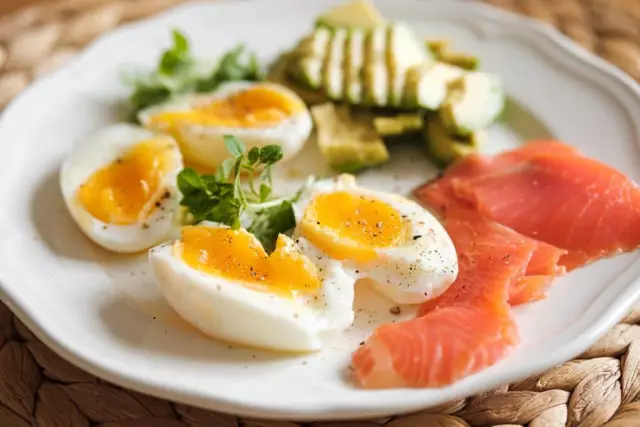- Author Rachel Wainwright wainwright@abchealthonline.com.
- Public 2023-12-15 07:39.
- Last modified 2025-11-02 20:14.
Diet for cancer

The cancer diet is designed to improve the general condition of patients, reduce the risk of developing metastases and secondary disease. Such food should be balanced, containing a large amount of vitamins and minerals.
Features of the anti-cancer diet
In the course of international medical research, it was found that the daily consumption of fruits and vegetables can reduce the risk of developing cancer by 20-30%. The composition of fresh fruits and vegetables has anti-cancer and anti-inflammatory effects. The daily diet should include 5 servings of fruit along with legumes, cereals and rice.
A cancer diet helps to strengthen the immune system during treatment and chemotherapy. Vitamins, minerals and trace elements can reduce the risk of developing malignant tumors and contribute to effective treatment.
A good anti-cancer diet helps to restore healthy cells and tissues, improve well-being and prevent wasting at various stages of the course of cancer.
Cancer diet menu planning
While on a cancer diet, you should plan your daily diet and increase your intake of healthy foods.
Useful products include:
- green plants (algae, greens, cabbage, mustard, nettle, chlorella) with a high content of chlorophyll to increase anticancer activity and stimulate phagocytosis;
- red-orange and yellow vegetables, fruits and plants that are rich in lycopene and lutein, and also have anti-cancer effects and increase immunity;
- blue (purple and purple) vegetables and fruits with a high content of anthocyanids, designed to neutralize free radicals, eliminate inflammation and activate the immune system in the fight against toxins and viruses;
- anticancer vegetables and fruits (garlic, onion, broccoli, pineapple, etc.);
- cruciferous vegetables containing indole, which activates antitumor properties;
- green tea;
- fruits and berries with ellagic acid, which prevents the development of cancer cells.
The diet for cancer of the rectum and digestive system is strict and prescribes to exclude the following foods from the diet:
- meat and sausages;
- animal fats, margarine and mayonnaise;
- fish and fish products;
- high fat dairy products;
- chicken eggs;
- smoked and pickled foods;
- fried foods;
- sugar;
- flour products;
- canned food and semi-finished products;
- artificial and carbonated drinks;
- coffee and chocolate;
- mushrooms;
- legumes;
- yeast;
- vinegar;
- vegetable oils;
- potatoes;
- coconuts and coconut milk;
- pickled vegetables.
Making a diet for stomach cancer
To draw up a diet for stomach cancer, it is necessary to take into account the age, physiological and psychological characteristics of the patient, as well as the stage of the course of the oncological disease.
At the first stage, it is necessary to gradually limit the use of fatty, spicy and flour products. The basis of the daily diet should be porridge made from buckwheat, oats and wheat, boiled brown rice and freshly squeezed juices. Beet, celery and carrot juices are useful during a cancer diet.
In the second stage of the diet for stomach cancer, it is necessary to consume a large amount of boiled and steamed vegetables, and you should also add rosehip broth, lemon juice, red currants, apples, herbs, onions and garlic to the diet. The second phase of the anti-cancer diet lasts 2 to 4 months.
The final third stage of the diet for stomach cancer involves cleansing the body of salts and toxins. The diet should include nuts, various vegetables and fruits, seeds, lentils and cereals.

During the entire period of adherence to the diet for cancer of the rectum and stomach, it is necessary to eat food at strictly allotted hours, to prevent attacks of hunger and depletion of the body.
Diet advice for breast cancer
It is necessary to follow a diet for breast cancer both in preparation for the main treatment and during the main therapy (chemotherapy, radiotherapy, etc.). The correct dietary menu will improve the condition of the body and reduce the side effects of chemical treatments.
A balanced and regular anti-cancer diet reduces the risk of recurrent breast cancer and eliminates contributing factors such as obesity, diabetes, hypertension, and metabolic disorders.
The following are the main dietary recommendations for breast cancer:
- decrease in the daily calorie content of products;
- the basis of the diet should be fruits and vegetables, cereals and freshly squeezed juices;
- animal and vegetable fats should be reduced to a minimum;
- soy consumption should be limited;
- to strengthen the musculoskeletal system, it is necessary to consume 2 grams of calcium per day;
- flour products, alcoholic and carbonated drinks should be excluded from the menu;
- sugar and sugar-containing foods should be excluded, as they are a nutrient component of cancer cells;
- with a lack of vitamin D, it is necessary to consume fish oil, sardines, herring, tuna and cod liver.
An anti-cancer diet should be supervised by a treating oncologist and nutritionist with constant monitoring of blood glucose and cholesterol levels.
Found a mistake in the text? Select it and press Ctrl + Enter.






